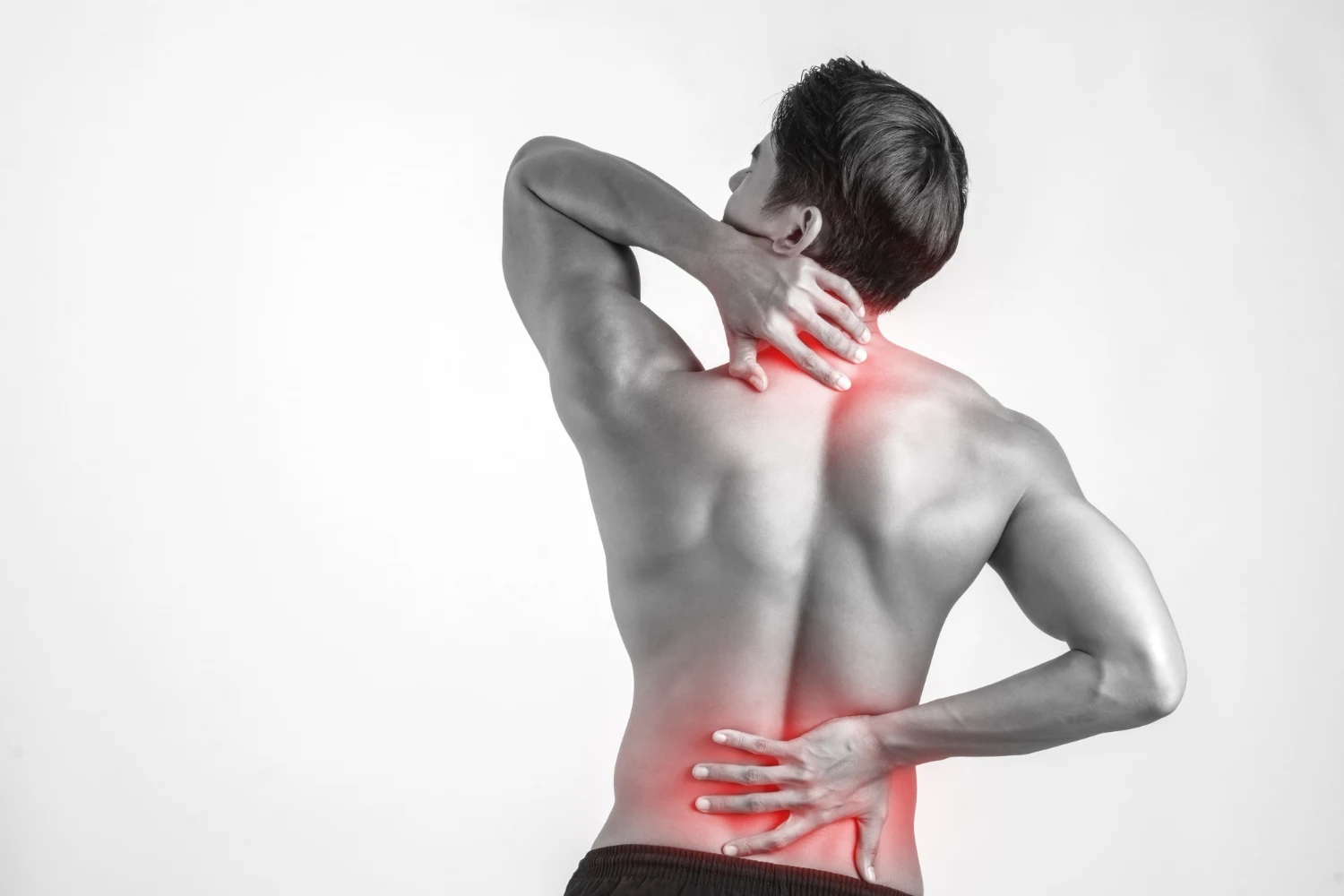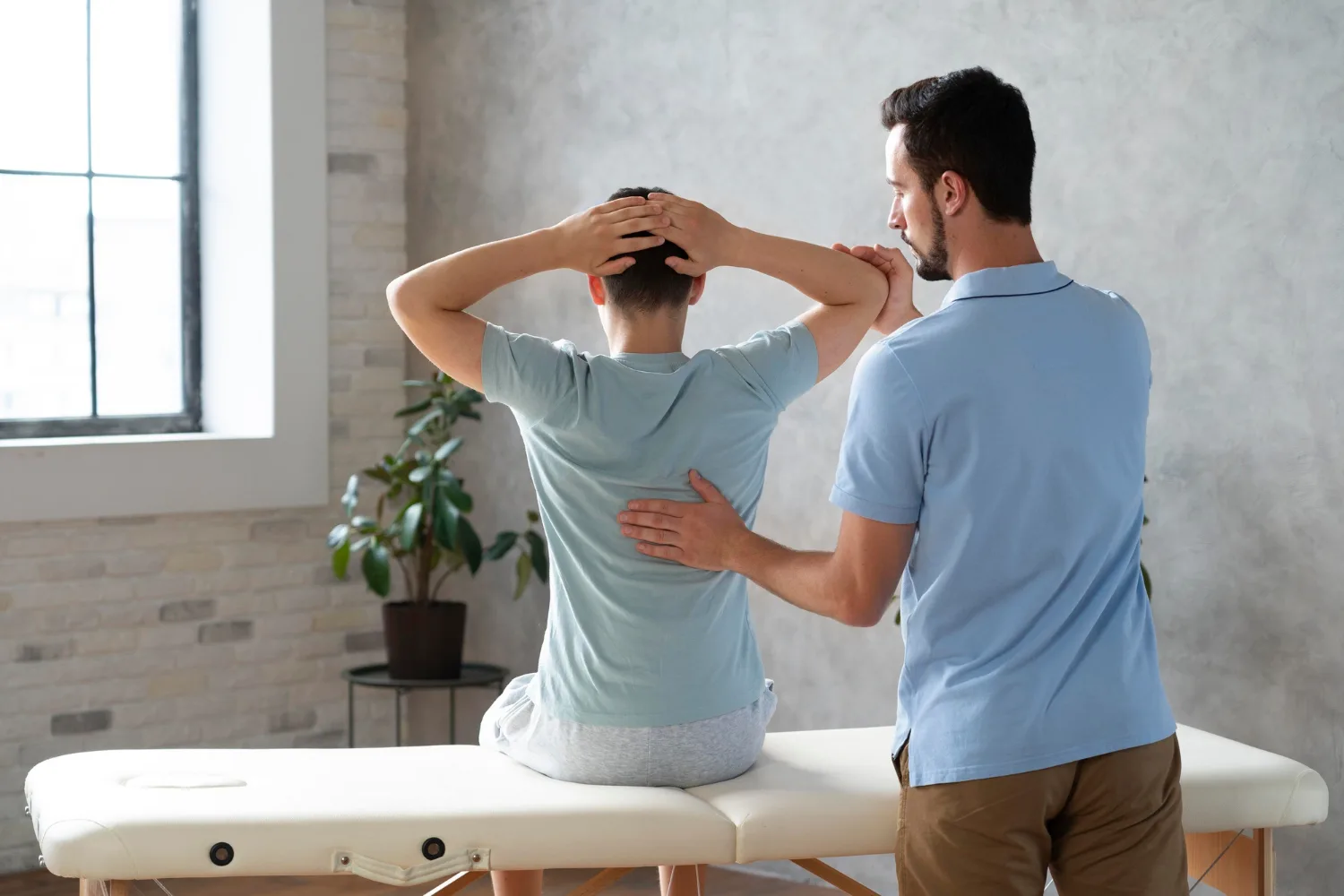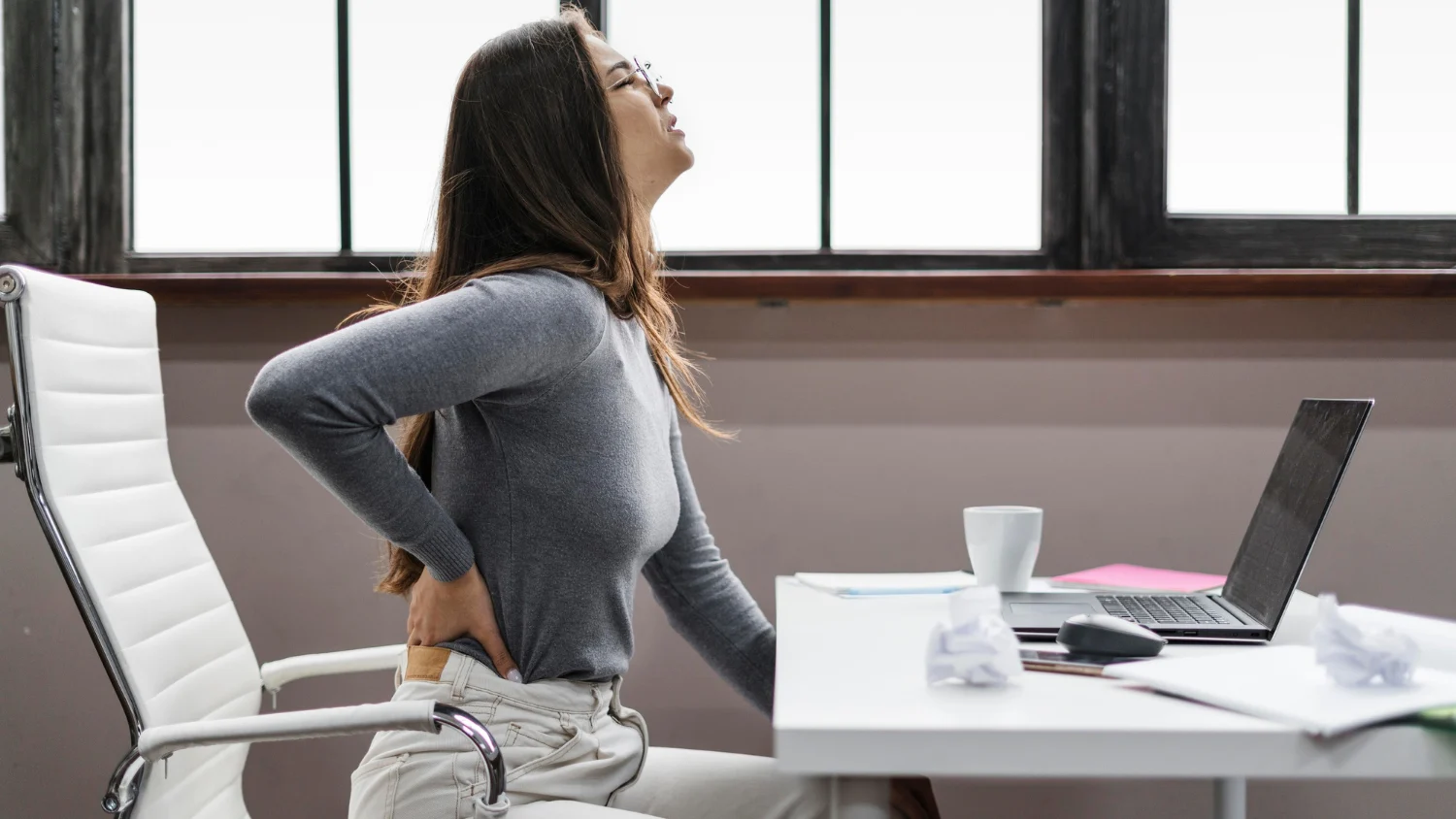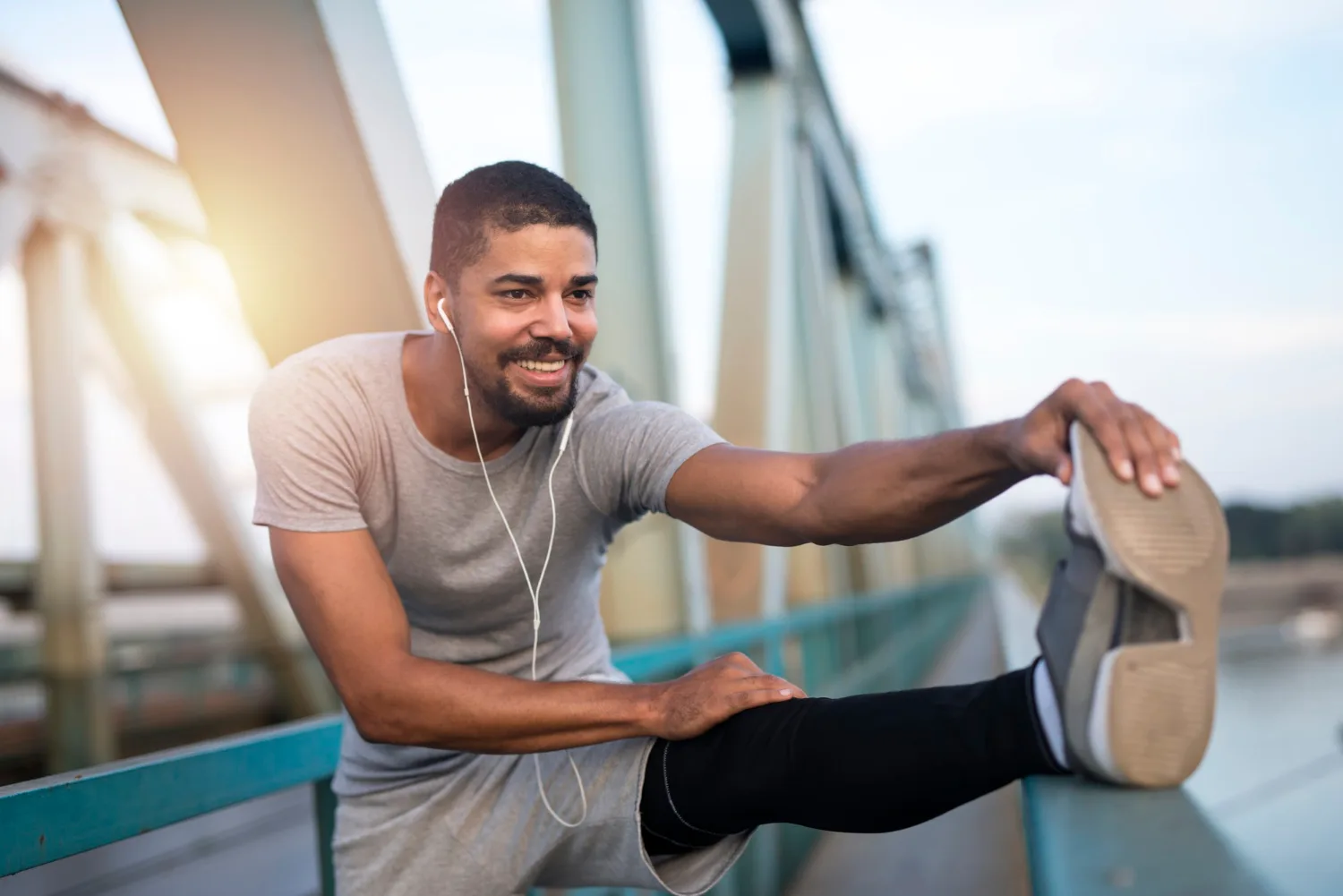How To Fix Lower Spine Pain?
Category: Orthopedics
Lower spine pain is one of the most common health concerns affecting millions across all age groups. It can range from a mild ache to a debilitating condition that affects your ability to walk, work, or sleep. At Lokmanya Hospitals, widely recognized as one of the best hospitals for spine treatment in Pune, we understand how disruptive lower spine pain can be—and we’re here to help you heal with precision, compassion, and the latest medical advancements.
Whether you’re dealing with occasional stiffness, chronic lower back pain, or a more serious spinal issue, early intervention is key. This blog explores the causes, treatment options, home
What Causes Lower Spine Pain?
Lower spine pain, also known as lumbar spine pain, often stems from a range of structural, lifestyle-related, or degenerative factors. It’s important to identify the root cause to ensure the right treatment. At Lokmanya Hospitals, one of the best hospitals for spine treatment in Pune, we take a comprehensive diagnostic approach to pinpoint these causes accurately. Below are the most common reasons behind lower spine discomfort:
1. Muscle or Ligament Strain
One of the leading causes of sudden lower back pain is muscle or ligament strain. This can occur due to:
- Lifting heavy objects improperly
- Sudden movements or falls
- Overuse from repetitive activity (e.g., prolonged bending or twisting)
Strained muscles or ligaments can inflame the surrounding tissues, causing stiffness, soreness, and restricted mobility. While often acute, if not managed correctly, it may evolve into chronic pain.
2. Herniated or Bulging Discs
Discs are the cushioning pads between the vertebrae. With age, injury, or stress, these discs can bulge or rupture, pressing against nearby spinal nerves. This condition is often referred to as a slipped disc or herniated disc, and symptoms may include:
- Shooting pain down the legs (sciatica)
- Numbness or tingling
- Weakness in the lower limbs
This is one of the most common spine problems treated at Lokmanya Hospitals, where advanced imaging helps us detect and treat it with precision.
3. Degenerative Disc Disease
As we age, our spinal discs naturally lose hydration and elasticity. This wear and tear process is called degenerative disc disease and can lead to:
- Chronic lower back pain
- Disc thinning and instability
- Inflammation in surrounding joints
Although considered a part of aging, it can start early in people with sedentary lifestyles or genetic predisposition. At Lokmanya, we offer tailored non-surgical and surgical treatments to restore spine function in such cases.
4. Spinal Stenosis
Spinal stenosis refers to the narrowing of the spinal canal, which places pressure on the spinal cord and nerves. It’s typically caused by arthritis, bone spurs, or disc bulges. Common symptoms include:
- Pain when walking or standing
- Numbness in the legs
- Muscle weakness
Spinal stenosis is progressive and needs early intervention. We specialize in minimally invasive spine procedures that relieve nerve compression with less downtime.
5. Spondylolisthesis
This condition occurs when one vertebra slips out of place over the vertebra below it. It often leads to:
- Lower back pain
- Muscle tightness
- Nerve irritation or leg pain
Spondylolisthesis can be congenital, degenerative, or injury-related. Depending on the severity, our spine specialists may recommend physiotherapy or surgical stabilization.
6. Poor Posture and Sedentary Lifestyle
Prolonged sitting, especially with poor posture, puts continuous pressure on the lumbar spine. This weakens spinal muscles and leads to disc strain, causing chronic pain and stiffness. With more people working long hours at desks, this is now a common cause of back pain in young adults. Lokmanya’s rehab experts provide ergonomic and lifestyle counseling to help reverse these effects.
7. Injuries or Trauma
Accidents, falls, or sports injuries can lead to fractures, dislocations, or soft tissue injuries in the lower back. Even minor trauma can trigger long-term complications if not treated correctly. Our spine team works closely with orthopedic specialists to manage both acute and post-traumatic spine pain.
How to Fix Lower Spine Pain: Treatment Options
1. Medical Diagnosis Is Crucial
Before starting any treatment, a proper diagnosis is essential. At Lokmanya Hospitals, we use advanced diagnostic tools such as MRI, CT scans, and nerve studies to identify the exact cause of your pain.
2. Medications and Pain Management
For mild to moderate pain, doctors may prescribe:
- NSAIDs (e.g., ibuprofen) for inflammation
- Muscle relaxants to reduce spasms
- Nerve pain medications in cases of sciatica or nerve compression
3. Physiotherapy and Rehabilitation
Supervised exercises help strengthen the back, improve posture, and relieve pressure on the spine. Our in-house spine rehab specialists customize physiotherapy plans for each patient.
4. Minimally Invasive Procedures
When conservative treatments fail, minimally invasive spine surgery may be recommended. These procedures reduce tissue damage, minimize hospital stays, and promote faster recovery.
Common interventions include:
- Microdiscectomy
- Endoscopic spine surgery
- Spinal fusion (in severe instability)
- Nerve decompression procedures
Lokmanya Hospitals specializes in minimally invasive spine surgery with a high success rate and lower post-operative pain.
5. Lifestyle Modifications
- Maintaining a healthy weight
- Practicing good posture
- Avoiding prolonged sitting
- Stretching and strengthening core muscles
- Using ergonomic furniture
Why Choose Lokmanya Hospitals for Spine Care?
At Lokmanya Hospitals, we are recognized as one of the best hospitals for lower spine pain treatment in Pune, offering expert care backed by innovation and compassion. Our dedicated Spine Care Unit operates with international clinical protocols and is led by a team of highly experienced neurosurgeons and spine specialists. Whether you're dealing with a herniated disc, spinal stenosis, or chronic lower back pain, our focus is on accurate diagnosis and evidence-based treatment.
What sets us apart is our commitment to minimally invasive and non-surgical treatments, paired with advanced diagnostics and personalized rehabilitation. Thousands of patients have regained pain-free mobility through our comprehensive care model—from root cause identification to recovery planning. At Lokmanya, we don't just manage symptoms—we work to restore your quality of life.
When Should You See a Spine Specialist?
- Seek immediate medical help if you experience:
- Persistent pain for more than 2 weeks
- Pain radiating to your legs or buttocks
- Numbness or tingling in your limbs
- Sudden weakness or muscle loss
- Loss of bladder or bowel control
Delaying care can lead to complications such as permanent nerve damage or worsening spine conditions.
Conclusion
Lower spine pain is treatable, but only if addressed early and effectively. Whether caused by lifestyle habits, injury, or degenerative changes, there's always a solution—and Lokmanya Hospitals is here to help you find it. Our integrated approach combines world-class technology, medical expertise, and personalized care to deliver lasting relief and restore spinal health.
Don’t let lower back pain limit your life. Book a consultation with our spine experts today.
FAQs About Lower Spine Pain
Q1. What is the fastest way to relieve lower spine pain?
A combination of rest, cold/heat therapy, gentle stretching, and over-the-counter medications may offer quick relief. However, a proper diagnosis is essential for long-term results.
Q2. Can exercise help in curing lower spine pain?
Yes. Supervised physical therapy can strengthen the spine and reduce pain over time. Avoid self-prescribed exercises that may worsen the condition.
Q3. Is surgery the only solution for severe lower spine pain?
No. Lokmanya Hospitals emphasizes non-surgical treatments first. Surgery is considered only if conservative options fail or in emergency cases.
Q4. How do I know if my lower back pain is serious?
If the pain persists beyond 2 weeks, radiates to your legs, or is accompanied by numbness or incontinence, consult a spine specialist immediately.
Q5. Is Lokmanya Hospital good for spine surgery?
Absolutely. Lokmanya Hospitals is one of India’s best hospitals for spine surgery, known for advanced technology, minimally invasive techniques, and excellent patient outcomes.
Previous blog

What Is A Spine Problem?
Next blog






